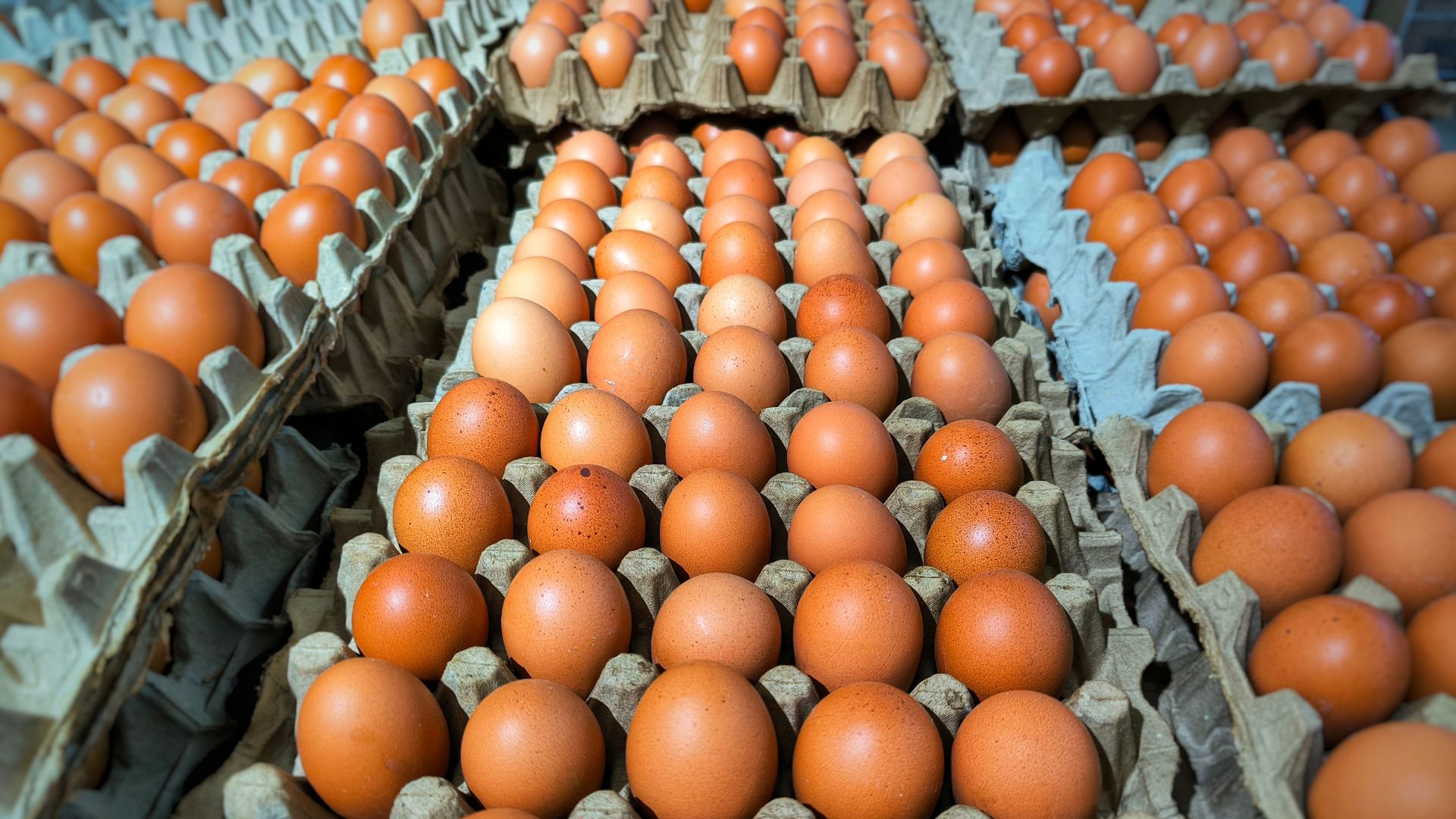
After months of soaring grocery costs, Americans are seeing some relief as wholesale egg prices continue to decline.
The latest USDA report confirms that egg prices have dropped for the third consecutive week under President Donald Trump’s leadership, bringing much-needed financial relief to households across the country.
According to the USDA, the average wholesale price for a dozen eggs has fallen to $4.15—a sharp $2.70 drop from just a week earlier.
Elon Musk Called This Financial News ‘Terrifying’
At the end of last month, prices had climbed to over $8 per dozen, forcing many consumers to cut back on a basic staple.
The recent decline is attributed to stabilizing supply chains and a decrease in demand following the post-holiday surge.
One key factor behind the price drop is the slowdown of avian flu outbreaks, which had severely impacted poultry farms in previous years.
With fewer cases affecting egg production, supply levels have started to recover. Analysts also note that Easter’s later arrival this year has delayed peak demand, contributing to the recent price stabilization.
American Made Patriotic Apparel – Save 15% with Promo Code MERICA
Despite the significant drop in wholesale prices, the USDA cautioned that many consumers may not immediately see these reductions at the retail level.
Grocery stores are still selling eggs based on prior wholesale prices, but industry experts anticipate that lower costs will start reaching store shelves in the coming weeks.
Wholesale egg prices have fallen in key markets nationwide.
In New York, prices have decreased to $4.78 per dozen, while in the Midwest, warehouse prices have dropped to $7.47.
California, which consistently sees some of the highest grocery costs, has also recorded a decline, with eggs now averaging $9.48 per dozen.
Retailers remain cautious about adjusting prices too quickly, fearing that sudden price cuts could lead to panic-buying, which could once again disrupt supply chains.
However, egg inventory is growing, with the USDA reporting that national stocks of large eggs have risen by 8.5%, while Midwest stocks have increased by 10%.
For months, rising grocery prices—especially the cost of eggs—were used to criticize Trump’s economic policies.
However, historical data shows that egg prices remained relatively stable during Trump’s first term, averaging between $1.40 and $1.74 per dozen.
Under Joe Biden, inflation, supply chain disruptions, and avian flu outbreaks drove prices to historic highs, peaking at an average of $6.57 per dozen.
Some businesses, including restaurant chains like Waffle House, even implemented additional charges for egg-based meals due to the soaring costs.
Now, as inflation eases and supply chains improve, the economic outlook is shifting, with analysts expecting continued price relief as Easter approaches.
With Trump back in office, his administration is prioritizing economic stability, focusing on reversing inflationary policies, reducing regulatory burdens on farmers, and strengthening domestic food production.
While food prices remain higher than in previous years, supporters argue that Trump’s approach—emphasizing domestic energy production and reduced government spending—will help ease costs for American consumers.
As grocery prices begin to decline, families are hopeful that this trend will continue, providing long-overdue relief from inflation-driven price hikes.
The opinions expressed by contributors and/or content partners are their own and do not necessarily reflect the views of LifeZette. Contact us for guidelines on submitting your own commentary.

![Cracks Emerge in Democrats' Strategy Linking Egg Prices to Trump [WATCH]](https://www.right2024.com/wp-content/uploads/2025/03/1741761326_Cracks-Emerge-in-Democrats-Strategy-Linking-Egg-Prices-to-Trump-750x375.jpg)




![Trump's Admin Guts Another ‘Rogue Government Agency with Zero Accountability’ [WATCH]](https://www.right2024.com/wp-content/uploads/2025/03/Trumps-Admin-Guts-Another-‘Rogue-Government-Agency-with-Zero-Accountability-350x250.jpg)
![‘We All Owe Him (Elon) a Huge Debt of Gratitude’ [WATCH]](https://www.right2024.com/wp-content/uploads/2025/03/‘We-All-Owe-Him-Elon-a-Huge-Debt-of-Gratitude-350x250.jpg)









